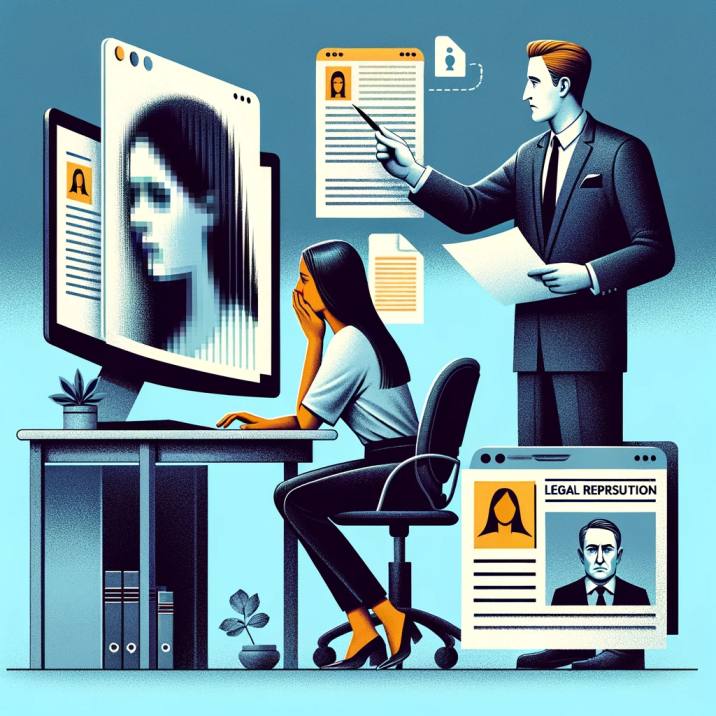In this article we have explained the Steps to take after receiving a Bounced Cheque. As receiving a bounced cheque can be a frustrating and potentially costly experience. It’s important to handle the situation carefully to ensure you can recover your funds and avoid any legal pitfalls. This article outlines the essential steps to take if you find yourself in this situation.
Understanding a Bounced Cheque
What is a Bounced Cheque?
A bounced cheque, also known as a dishonored cheque, occurs when the payer’s bank account does not have sufficient funds or the cheque is written incorrectly. This results in the cheque being returned unpaid by the bank.
The Implications of a Bounced Cheque
Receiving a bounced cheque can lead to financial losses, additional bank charges, and legal complications. It’s essential to address the issue promptly and efficiently.
Steps to Take After Receiving a Bounced Cheque
Step 1: Verify the Cheque Details
Ensure that the cheque’s failure is not due to an error on your part, such as depositing it before the date written on it.
Step 2: Contact the Payer
Inform the payer about the bounced cheque. Often, it could be a result of a simple oversight or banking error that can be quickly rectified.
Step 3: Document the Communication
Keep a record of all communications with the payer for future reference. This might be useful if the matter escalates to legal proceedings.
Legal and Financial Steps
Understanding Your Legal Rights
Be aware of the laws regarding bounced cheques in your jurisdiction, as these can vary significantly.
Step 4: Send a Formal Notice
If the payer does not respond or refuses to make the payment, send a formal notice requesting payment within a specified period.
Step 5: Consider Legal Action
If the payment is not received after sending the notice, consider taking legal action. Consult with a lawyer to understand your options.
Preventative Measures for the Future
Step 6: Implement a Cheque Acceptance Policy
Develop a policy for accepting cheques to minimize the risk of receiving bounced cheques. This might include verifying the payer’s identity and banking history.
Step 7: Explore Alternative Payment Methods
Consider using electronic payments which are generally more secure and less prone to issues like insufficient funds.
Conclusion: Safeguarding Against Bounced Cheques
Receiving a bounced cheque can be a challenging experience, but taking the right steps can help mitigate the impact on your finances and business operations. By understanding the problem, communicating effectively, and taking appropriate legal action if necessary, you can protect your financial interests. Additionally, implementing preventative measures will reduce the likelihood of facing similar issues in the future.
FAQs on Handling a Bounced Cheque
- What is a bounced cheque?
A bounced cheque is a cheque that cannot be processed due to insufficient funds in the payer’s account or other issues like signature mismatch. - Why do cheques bounce?
Cheques typically bounce due to insufficient funds in the issuer’s account, but can also be due to incorrect date, signature mismatch, or account closure. - What should I do first upon receiving a bounced cheque?
First, verify the cheque details to ensure the issue isn’t on your end, such as a wrong deposit date. - Is it important to contact the issuer of the bounced cheque?
Yes, contact the issuer to inform them of the situation as it could be an unintentional error on their part. - How should I record communications about a bounced cheque?
Keep emails, letters, or notes of phone calls regarding the bounced cheque for potential legal use. - Are there bank charges for depositing a bounced cheque?
Yes, banks often charge a fee for handling a bounced cheque. - Can I redeposit a bounced cheque?
It depends on the reason for bouncing. If it’s due to temporary insufficient funds, you may redeposit it. - What legal action can I take for a bounced cheque?
Legal actions vary by jurisdiction, but generally, you can file a complaint or lawsuit for cheque fraud. - Should I always accept cheques as payment?
It depends on your risk tolerance. Consider the payer’s reliability and other payment options. - How can I prevent receiving bounced cheques?
Implement a cheque acceptance policy and consider alternative, more secure payment methods. - What is a formal notice for a bounced cheque?
It’s a written communication demanding payment within a specified period after the cheque bounces. - How long should I wait before taking legal action?
The waiting period varies by jurisdiction, but typically it’s a few weeks to a few months. - Can a bounced cheque affect my credit score?
No, it doesn’t directly affect your credit score unless it leads to significant financial issues. - What information should a bounced cheque notice include?
It should include cheque details, the amount due, and a deadline for payment. - Is it necessary to consult a lawyer for a bounced cheque?
For significant amounts or repeated issues, consulting a lawyer is advisable. - What if the cheque issuer refuses to pay after the cheque bounces?
You may need to pursue legal action to recover your funds. - Can a post-dated cheque bounce?
Yes, if there are insufficient funds in the issuer’s account at the time of processing. - Should I charge a fee for a bounced cheque?
You can charge a fee to cover bank charges and administrative costs, subject to local laws. - What are the risks of accepting a cheque?
The main risks include non-payment due to insufficient funds and potential bank fees. - How can electronic payments help in avoiding bounced cheques?
Electronic payments are immediate and typically have built-in safeguards against insufficient funds. - What should be included in a cheque acceptance policy?
It should include verification of identity, checking the issuer’s cheque history, and clear terms for handling bounced cheques. - Can I blacklist a customer for issuing a bounced cheque?
You can refuse future cheques but be cautious about legal implications of blacklisting. - Is a bounced cheque a criminal offense?
In some jurisdictions, knowingly issuing a cheque without sufficient funds is a criminal offense. - How do I handle a bounced cheque from a regular customer?
Communicate openly and consider if it’s a one-time error or part of a pattern. - What are the alternatives to accepting cheques?
Consider electronic transfers, credit/debit cards, or online payment platforms. - Can a bank help in recovering funds from a bounced cheque?
Banks typically do not assist in fund recovery but can provide necessary documentation. - How do I inform my customers about my cheque policy?
Clearly display your policy at the point of sale and on invoices. - What if the bounced cheque is from a company?
Contact the company’s accounts department and follow the same steps as with an individual. - Can a stop payment cause a cheque to bounce?
Yes, if the issuer requests a stop payment, the cheque will bounce. -
What are the common mistakes to avoid with bounced cheques?
Avoid redepositing without confirmation of funds, ignoring legal timeframes, and not documenting communications.













